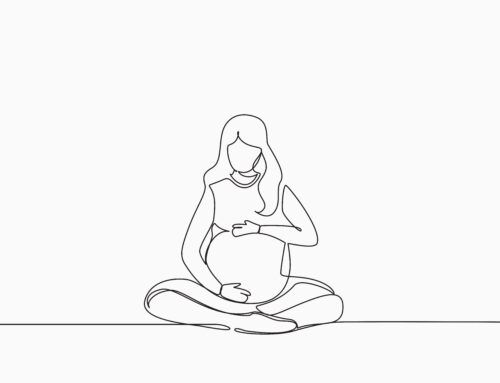Sudden infant death syndrome, also known as SIDS or “crib death”, is the unexplained death of a seemingly healthy baby, who is less than a year old. SIDS most often occurs during sleep and unfortunately, the exact cause of Sudden Infant Death Syndrome is still unknown. Though still unknown, SIDS could be associated with abnormalities in the section of the infant’s brain that controls breathing and arousal from sleep.
What makes an infant more vulnerable to SIDS?
Though there is no exact cause for SIDS, there are factors that can make infants more vulnerable to suffering from SIDS. Some causes can be physical and sleep environmental factors.
The physical factors associated with SIDS include:
- Brain abnormalities. Some babies are born with a defect in portion of the brain that controls breathing and arousal from sleep.
- Low birth weight. Premature birth, or being a low birth weight, can increase the likelihood that a baby’s brain hasn’t matured completely. This could cause issues with the child’s control over breathing and heart rate.
- Respiratory infection. Studies have shown that many infants who have died from SIDS had recently had a cold, which resulted in breathing problems.
Sleep environmental factors include:
- Sleeping on the stomach or side. When a baby is placed on their stomach to sleep, they can have more trouble breathing than if they were correctly placed on their backs.
- Sleeping on a soft surface. Lying face down on a soft surface puts the infant at high risk of blocking their airways.
- Sleeping with parents. It is true that if the baby sleeps inside the parent’s room the risk of SIDS decreases, but the infant should never sleep in the same bed! Sleeping in the same bed as the parents cause a high risk of SIDS.
While all of this information may sound alarming, especially to new expecting parents, there are steps that you can take to reduce the risk of SIDS.
Steps to reducing the risk of SIDS…
- Place babies on their backs to sleep. This is probably the most important measure to take! Healthcare providers can’t stress enough how important it is to place your baby on its back for every sleep! (there are a small number of babies who need to be placed on their stomachs to sleep, your healthcare provider will be able to offer you that information)
- Share your room, not your bed. Infants should not sleep in an adult bed, on the couch, or with you in bed.
- Use a Safety Approved Crib. Be sure that the crib you are using for your baby is safety approved and has a firm mattress, covered with a tight fitted sheet.
- Eliminate Pillows and Loose Bedding. Do not place pillows, crib bumpers, stuffed animals, and any loose bedding inside your infant’s crib. Keep the crib as bare as possible!
- Prevent Exposure to Smoking. It is extremely important to not smoke while pregnant! It is also equally as important to eliminate the baby’s exposure to smoking. Smoking and being exposed to smokers increases the risks of SIDS!
- Breast Feed. Studies show that babies who are breast fed for the first 6 months of life are at a lower risk for SIDS
- Use a Pacifier (not attached to a string) at Night. Research shows that babies who have pacifiers during sleep are at a lower risk for SIDS than babies who do not. If you are planning on using a pacifier for sleep, do not force it, coat the pacifier in anything sweet or sticky, and be sure to clean it regularly.
- Tummy Time! Tummy time is very important for new infants and it also reduces the risk of SIDS! Tummy time prevents flat spots on your child’s head and is needed for the growth of your child. Babies benefit from 2-3 tummy time sessions a day, lasts around 3-5 minutes each!
- Don’t Over Heat! Keeping your baby warm at night is very important. But, over heating your child can be dangerous. To keep your baby warm at night, try a sleep sack! If you intend to use a blanket make sure that it is light weight and securely tuck the blanket into the foot of the mattress. Allow the blanket to cover your baby’s shoulders and do not cover the baby’s head!
In the United States, around 3,500 infants die from SIDS each year. With no exact cause of SIDS it is important that expecting parents educate themselves on this tragic issue. For families that have experienced SIDS death, there are many support groups, like the Sudden Infant Death Syndrome Alliance, who can provide families with support and counseling.
For expecting parents, being prepared and knowledgeable about SIDS is an important step in reducing the risks with your own children.




